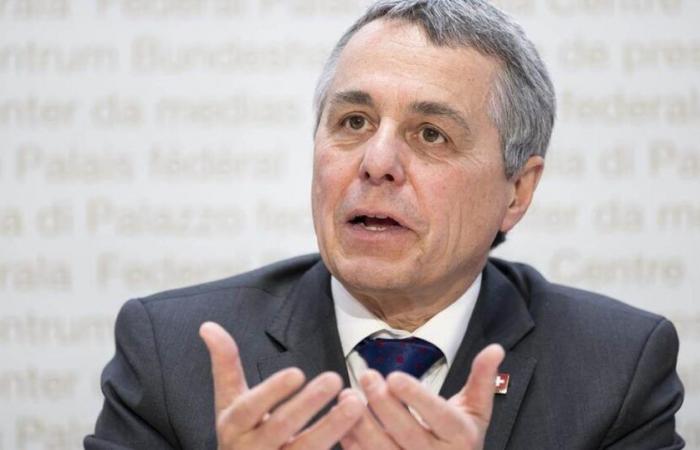This week, the head of the Foreign Affairs Department Ignazio Cassis presented the decision of the Federal Council to submit the new Swiss-EU agreements to an optional, and not compulsory referendum. A decision which raises the opposition of part of the Parliament.
The decision of the Federal Council to pass the new Swiss-EU agreements through an optional referendum-and not compulsory-is far from being a technical detail.
The rules of the game are not the same during an optional referendum or during a compulsory referendum. For an optional referendum, it is enough that a majority of the people say yes for the text to be adopted. When a referendum is compulsory, it also takes a majority of cantons.
The compulsory referendum thus gives more weight to certain small cantons, typically those of central Switzerland, traditionally Eurosceptic. The Swiss-EU agreements would therefore have less chances of success in compulsory referendum.
States advisers on the front line
Critics come in particular from advisers to the States, whose role is to bring the voice of the cantons to the Federal Parliament.
Heidi Z’graggen, centrist representative of the canton of Uri, estimated Sunday in Colonnes’s LA NZZ in the SiancyAg that “these treaties have a great influence on the cantons”, and that therefore, their approval is necessary.
Critics are also emerging in the party of Ignazio Cassis itself. The PLR Petra Gössi, Schwytzoise states advisor, says he is disappointed with the government’s decision.
“The choice of continuity”
The Federal Council has chosen continuity, replies the head of the Department of Foreign Affairs.
“The decision of the Federal Council is a constitutional decision. It has looked at comparable decisions of the past: the bilaterals 1 and the bilaterals 2. Here too, the referendum was optional,” defends the Federal Advisor PLR.
Au micro de SRFIgnazio Cassis adds: “Is there something in these negotiations which requires a modification of the constitution? The answer is no”, justifying at the same time the non-recourse to the compulsory referendum.
Despite the arguments of Ignazio Cassis, the opposition of certain counselors in the States could sufficiently weigh in the balance, because in the end, it will be in the Parliament to decide between optional referendum and compulsory referendum.
>> Listen to the media forum about this decision of the Federal Council to go through an optional referendum:
Ben on the prior consultation procedure for agreements
Other federal elected officials also expressed their disagreement in the face of the management of the European file by Ignazio Cassis. The members of the National Council’s foreign policy committee in particular. They believe they do not have access to the necessary documents and made it known by letter this week.
The problem pointed out by these elected officials is that the texts of the Swiss-EU package are available in preview-before the coming publication in the coming weeks-only for two parliamentarians per party.
This process of provision before the official publication was intended to calm the impatient. But the DFAE has attracted criticism of parliamentarians on the left and right, which question the legality of practice.
The official parliamentary debate on the Swiss-EU agreements will not start until next year. But these tensions show that on such a sensitive and important file, the Federal Council can only have difficulty affording any clumsiness.
Radio subject: Philéas Authier
Adaptation Web: Julien Furrer






